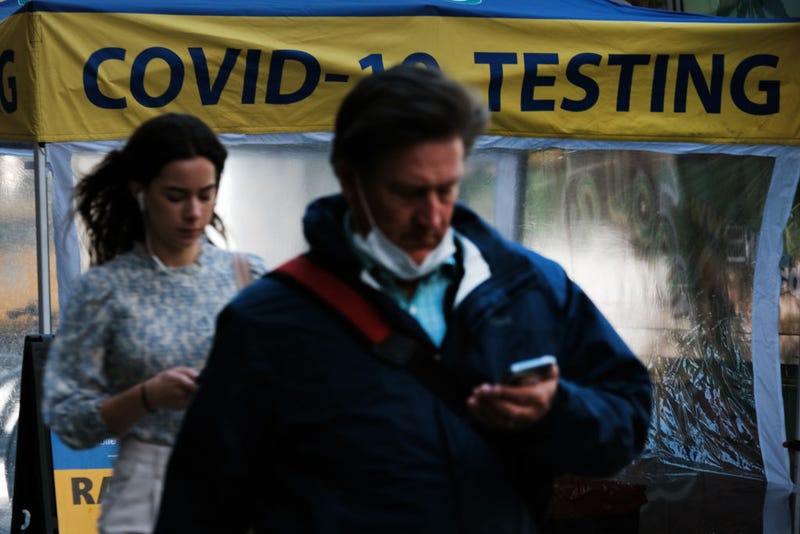
NEW YORK (1010 WINS) — Only half of New York City residents have received a COVID-19 booster shot, despite the fact that nearly two-thirds have been infected with the virus since 2020, according to a health study released Tuesday.
listen to 1010 wins
The rate of full vaccine and booster coverage across the five boroughs ranged from a high of 60% in Manhattan to a low of 34% in the Bronx, according to a poll conducted by the CUNY Graduate School of Public Health by Emerson College and reviewed by the New York Post.
Based on borough, there was a difference in the number of people seeking treatment for COVID, with 30% in Manhattan, compared to just 6% in Staten Island and 12% in the Bronx.
The study found that 86% of residents received at least one COVID jab, and 60% of parents had their kids vaccinated.
The number of children vaccinated appeared to vary by borough, with 69% of Manhattan parents having had a child vaccinated, compared to 55% in the Bronx.
More than 73,000 people in New York state have died as a result of the virus, with New York City serving as its initial epicenter. The poll found that 63% of those surveyed were stricken with COVID-19.
Another concern raised in the study: 22% of people said they or a family member had suffered from "long COVID," which according to the Centers for Disease Control and Prevention can "include a wide range of ongoing health problems" and "can last weeks, months, or years."
Dr. Ayman El-Mohandes, dean of CUNY’s School of Public Health and co-leader of the Pandemic Response Institute, said that nearly two-thirds infected with COVID-19 is "a big number," adding that he was surprised that only 48% of city adults received their COVID-19 booster shots.
Two-thirds of those living in Manhattan said they would take a booster every six months if recommended by health authorities, as compared to Staten Island at 41%. Staten Island was also the most unlikely to support vaccine restrictions, while Manhattanites were most likely to support them.
El-Mohandes noted that the "survey findings help us to examine the blind spots within our communities regarding the continued risks of COVID-19 exposure and need for vigilance in protection."
"It is important to disseminate more information about eligibility for treatment to all health care workers across the city and to ensure accessibility regardless of geographical location," he added.
El-Mohandes said the decision by city and state officials to loosen COVID-19 restrictions means "more responsibility has been placed on the shoulders of individuals to make better choices for themselves and their families," adding, "we as public health advocates must double down on education about testing, prevention and treatment for those at high risk."
Gov. Kathy Hochul on Monday loosened COVID-19 restrictions on schools this academic year, including an end to the random testing of students following the CDC which recently eased its guidelines.
The poll also found many New Yorkers have moved on from the virus, with about 30% across all boroughs paying less attention to COVID-19 messaging now compared with one year ago, the survey found.


